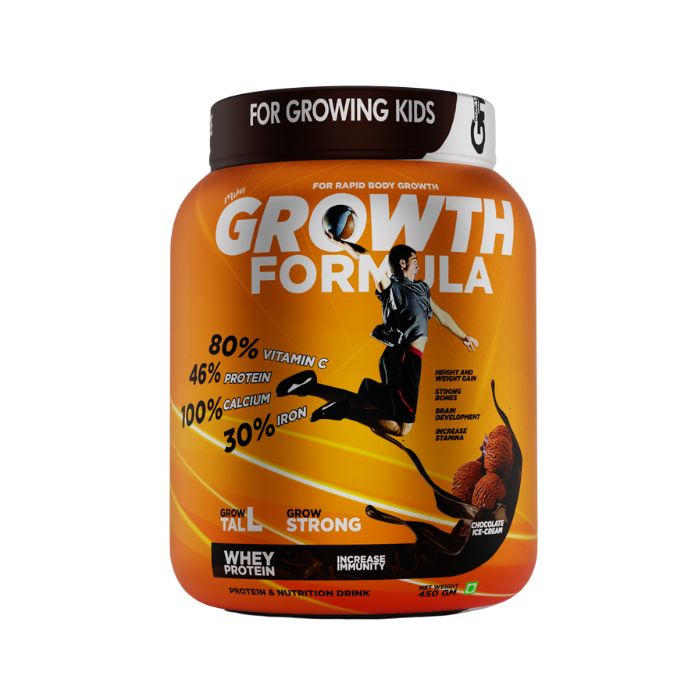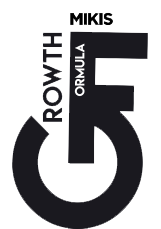
Best Growth Supplements for Teens: What Parents Should Know
Raising a teenager is an exciting journey filled with rapid growth, emotional development, and many physical changes. During adolescence, the body undergoes one of the most critical phases of development, and it becomes essential for parents to ensure their children receive the right nutrition. Among the many discussions around teenage health, one topic that continues to gain attention is the use of growth supplements.
In today’s blog, we’ll explore everything parents need to know about growth supplements for teens, including how they work, the importance of protein and growth, and what to consider before including any supplement in your child’s routine.
Understanding Teenage Growth and Nutrition
Adolescence is a time of intense physical transformation. Teenagers experience rapid increases in height, muscle development, hormonal changes, and energy demands. Proper nutrition during this phase is not only essential for physical growth but also for cognitive performance and emotional balance.
However, modern-day eating habits, academic pressure, and lifestyle choices often lead to nutritional gaps. This is where growth supplements may come into the picture, supporting teens who may not be getting all the nutrients they need from food alone.
What Are Growth Supplements?
Growth supplements are nutritional products specifically formulated to support the natural growth and development of children and teenagers. They usually contain a blend of essential vitamins, minerals, amino acids, and other nutrients required for bone development, muscle gain, hormonal balance, and overall well-being.
Some supplements are enriched with protein and growth nutrients, while others may also include calcium, iron, zinc, vitamin D, magnesium, and omega-3 fatty acids.
Why Growth Supplements for Teens?
While whole foods should always be the foundation of a teen’s diet, there are situations where growth supplements can be beneficial:
-
Poor appetite or picky eating habits
-
Medical conditions or frequent illnesses
-
Increased physical activity or athletic training
-
Vegetarian or restrictive diets
- Genetic growth delays or nutrient absorption issues
Parents may consider growth supplements when natural dietary intake does not meet the daily requirements for optimal development.
The Role of Protein and Growth in Teen Development
When we talk about protein and growth, it’s important to understand that protein is the building block of the body. It plays a key role in:
-
Building and repairing muscle tissues
-
Supporting hormone production
-
Strengthening bones and joints
- Enhancing immunity and energy levels
Adolescents require more protein than younger children due to the demands of physical growth and increased activity levels. This makes protein and growth a vital pairing when discussing teenage health.
Supplements rich in high-quality protein (such as whey, casein, or plant-based proteins) can support muscle development, especially for teens involved in sports or physical training.
How to Choose the Right Growth Supplement for Teens
Not all growth supplements are created equal. As a parent, you need to be cautious and well-informed before adding any supplement to your teenager’s diet.
Here's what to look for:
1. Clinically Supported Ingredients
Choose supplements that contain nutrients backed by scientific research, especially those supporting protein and growth, such as whey protein, calcium, vitamin D, and zinc.
2. No Harmful Additives
Avoid products with excessive sugar, artificial colors, preservatives, or stimulants. Teen supplements should be clean, natural, and safe for long-term use.
3. Age-Appropriate Formulas
Make sure the supplement is designed specifically for the teenage age group and not meant for adults or toddlers.
4. Doctor or Dietitian Consultation
Always consult your pediatrician or a qualified dietitian before starting growth supplements. They can assess your child’s current nutritional status and growth needs.
Food vs. Supplements: What Comes First?
No supplement can replace a balanced diet. Ideally, teens should get their nutrients through whole foods such as:
-
Milk, eggs, chicken, and fish (high in protein and growth nutrients)
-
Fruits and vegetables (vitamins and minerals)
-
Whole grains and legumes (fiber, iron, B-vitamins)
- Nuts and seeds (healthy fats, magnesium, zinc)
However, if there's a gap in nutritional intake, growth supplements can help fill in without disrupting the natural balance of a healthy diet.
When Should Parents Consider Supplements Seriously?
You might consider growth supplements if:
-
Your teen is noticeably shorter than peers despite a healthy diet
-
They are frequently tired, lethargic, or underweight
-
They have delayed signs of puberty
-
They’re recovering from a long illness or medical treatment
- A healthcare provider recommends supplementation after a growth assessment
Potential Risks of Unsupervised Supplement Use
While growth supplements can be beneficial, they should be used responsibly. Overuse or incorrect supplementation can lead to:
-
Nutrient imbalances
-
Hormonal disruptions
-
Digestive issues
-
Allergic reactions
That’s why guidance from a doctor or dietitian is essential before introducing growth supplements to your teen’s routine.
Growth Supplements and Exercise: A Winning Combo
Teens who engage in regular physical activity need more energy and nutrients to recover and grow. When combined with strength training or sports, protein and growth supplements can help in:
-
Lean muscle development
-
Reducing fatigue and injury risk
- Enhancing recovery time
However, the focus should remain on balanced meals. Supplements should only complement, not replace, wholesome nutrition and active lifestyles.
Myths About Growth Supplements
"Supplements are only for bodybuilders."
Not true. Teens with growth delays, nutritional gaps, or athletic goals can benefit from tailored growth supplements.
"They make you grow taller instantly."
Growth supplements don’t work like magic pills. They support natural growth over time, especially when paired with sleep, exercise, and nutrition.
"More supplements mean faster growth."
Excessive supplementation can be harmful. Always stick to recommended dosages and professional guidance.
Final Thoughts: Support, Not Substitute
As a parent, your goal is to empower your teen to grow into a strong, healthy adult. While balanced meals, regular exercise, and adequate sleep form the foundation, growth supplements can provide that extra layer of support especially when nutrition alone falls short. Understanding the connection between protein and growth, selecting quality supplements, and seeking expert advice can make a significant difference in your teen’s development journey.
At Growth Formula, we believe in supporting young minds and bodies with science-backed, safe, and natural growth supplements that help teens grow confidently and healthily just as they’re meant to.
FAQs
1. What age is appropriate to start growth supplements?
Most growth supplements are safe for teens aged 13 and above, but it's best to consult a doctor for age-appropriate guidance.
2. Are growth supplements safe for long-term use?
Yes, if taken under professional supervision and made with natural, clean ingredients, they can be safe for long-term use.
3. Can my child rely only on protein and growth supplements?
No. Whole foods should always come first. Supplements are meant to support not substitute a healthy diet.
4. Do growth supplements help with height increase?
They may support bone health and hormonal balance, which are essential for height development, but they don’t guarantee increased height.
5. How do I know if my teen needs growth supplements?
Signs like low energy, slow growth, frequent illnesses, or picky eating may indicate a need. Speak with a pediatrician to be sure.
6. What’s the best time to take protein and growth supplements?
Post-workout or between meals is generally effective, but timing should be personalized based on the teen’s routine and goals.
7. Can vegetarian teens take growth supplements?
Absolutely. Many growth supplements are plant-based and suitable for vegetarians, containing soy, pea protein, and plant-based vitamins.
8. Are there side effects of growth supplements?
If taken properly, side effects are rare. However, overuse can lead to digestive issues or nutrient imbalances.
9. Do all teens need protein and growth supplements?
Not necessarily. Only those with gaps in dietary protein intake or high activity levels may require additional supplementation.
10. Should I talk to a doctor before giving my child growth supplements?
Yes, always consult a healthcare professional to make informed, safe, and effective choices.
